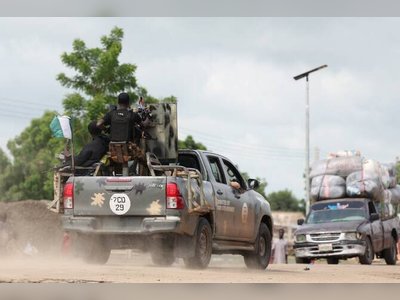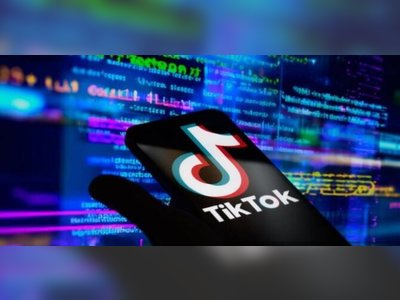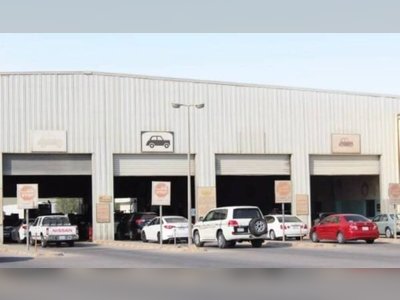
Tanzanian 'hero rats' aid search and rescue, fight tuberculosis
Rats with sensitive noses are trained by APOPO to detect explosives, disease and survivors in rubble; they help prevent the spread of TB.
In Morogoro, Tanzania, a man lies unmoving among the rubble of a simulated earthquake.
Approaching him is an unlikely rescuer: a rat wearing a backpack.
Whiskers waving, the rat navigates through the debris and activates its pack to alert searchers above with a resounding click, signaling the discovery of a survivor.
The successful mission earns the rat a banana reward.
Trained by APOPO, a Tanzania-based non-governmental organization, these African giant pouched rats are being deployed for search and rescue operations.
Their keen sense of smell allows them to detect explosives, tuberculosis—even tiny amounts of bacteria—accurately identifying survivors buried under rubble.
In a field nearby, more rats pace a grid filled with land mines as part of an initiative by APOPO, which collaborates with the Sokoine University of Agriculture.
These rats are preparing for deployment in countries such as Angola and Cambodia, where APOPO has helped clear over 50,000 land mines since 2014.
The 'hero rats' have extended their lifesaving work to tuberculosis detection.
For decades, APOPO has trained these specialized rats, which possess one of the most sensitive noses in the animal kingdom.
Since 2003, they've been locating land mines and more recently have focused on detecting trafficked wildlife and earthquake survivors.
The training process for these rats begins shortly after birth and can last for years, with each rat's training costing approximately €6,000 ($6,990).
The methodology involves classical conditioning and positive reinforcement.
A cohort of these specialized rats is already working in Turkiye with a partner search and rescue organization.
While the mine-detecting rats capture public attention, it's the lab-based rats that are arguably making a more significant impact by detecting tuberculosis.
The World Health Organization reported in October 2023 that TB led to 1.25 million deaths and 8.2 million infections globally last year, with sub-Saharan Africa struggling with low diagnosis rates.
APOPO expanded its efforts into TB detection in 2007, deploying rats in Tanzania, Ethiopia, and Mozambique.
The organization works with 80 hospitals in Tanzania, collecting daily samples that the lab rats analyze for positive TB cases initially marked as negative.
The rats detect six unique volatile organic compounds in positive samples.
The 'hero rats' aid in preventing false negatives, which can lead to the unintentional spread of disease, since each infected person can infect 10-15 others annually.
APOPO's rats have identified over 30,000 patients who were initially misdiagnosed and sent home with a clean bill of health but were actually carrying TB.
Despite their effectiveness, APOPO’s method faces challenges.
Regulators do not recognize the rats as primary diagnostic tools; instead, they are considered a secondary line of defense.
Positive samples identified by the rats must be confirmed through human microscopy in APOPO's labs before treatment can be administered.
Cox defends the approach, focusing on identifying every positive case possible to maximize social impact, even at the cost of potential false positives.
However, he acknowledges that achieving WHO approval is a significant challenge and has given up on the prospect of getting it.
The 'hero rats' continue their lifesaving work, aiding in search and rescue operations while preventing the spread of tuberculosis by detecting disease in samples.
They remain an unconventional but essential tool against these deadly threats.
Approaching him is an unlikely rescuer: a rat wearing a backpack.
Whiskers waving, the rat navigates through the debris and activates its pack to alert searchers above with a resounding click, signaling the discovery of a survivor.
The successful mission earns the rat a banana reward.
Trained by APOPO, a Tanzania-based non-governmental organization, these African giant pouched rats are being deployed for search and rescue operations.
Their keen sense of smell allows them to detect explosives, tuberculosis—even tiny amounts of bacteria—accurately identifying survivors buried under rubble.
In a field nearby, more rats pace a grid filled with land mines as part of an initiative by APOPO, which collaborates with the Sokoine University of Agriculture.
These rats are preparing for deployment in countries such as Angola and Cambodia, where APOPO has helped clear over 50,000 land mines since 2014.
The 'hero rats' have extended their lifesaving work to tuberculosis detection.
For decades, APOPO has trained these specialized rats, which possess one of the most sensitive noses in the animal kingdom.
Since 2003, they've been locating land mines and more recently have focused on detecting trafficked wildlife and earthquake survivors.
The training process for these rats begins shortly after birth and can last for years, with each rat's training costing approximately €6,000 ($6,990).
The methodology involves classical conditioning and positive reinforcement.
A cohort of these specialized rats is already working in Turkiye with a partner search and rescue organization.
While the mine-detecting rats capture public attention, it's the lab-based rats that are arguably making a more significant impact by detecting tuberculosis.
The World Health Organization reported in October 2023 that TB led to 1.25 million deaths and 8.2 million infections globally last year, with sub-Saharan Africa struggling with low diagnosis rates.
APOPO expanded its efforts into TB detection in 2007, deploying rats in Tanzania, Ethiopia, and Mozambique.
The organization works with 80 hospitals in Tanzania, collecting daily samples that the lab rats analyze for positive TB cases initially marked as negative.
The rats detect six unique volatile organic compounds in positive samples.
The 'hero rats' aid in preventing false negatives, which can lead to the unintentional spread of disease, since each infected person can infect 10-15 others annually.
APOPO's rats have identified over 30,000 patients who were initially misdiagnosed and sent home with a clean bill of health but were actually carrying TB.
Despite their effectiveness, APOPO’s method faces challenges.
Regulators do not recognize the rats as primary diagnostic tools; instead, they are considered a secondary line of defense.
Positive samples identified by the rats must be confirmed through human microscopy in APOPO's labs before treatment can be administered.
Cox defends the approach, focusing on identifying every positive case possible to maximize social impact, even at the cost of potential false positives.
However, he acknowledges that achieving WHO approval is a significant challenge and has given up on the prospect of getting it.
The 'hero rats' continue their lifesaving work, aiding in search and rescue operations while preventing the spread of tuberculosis by detecting disease in samples.
They remain an unconventional but essential tool against these deadly threats.











